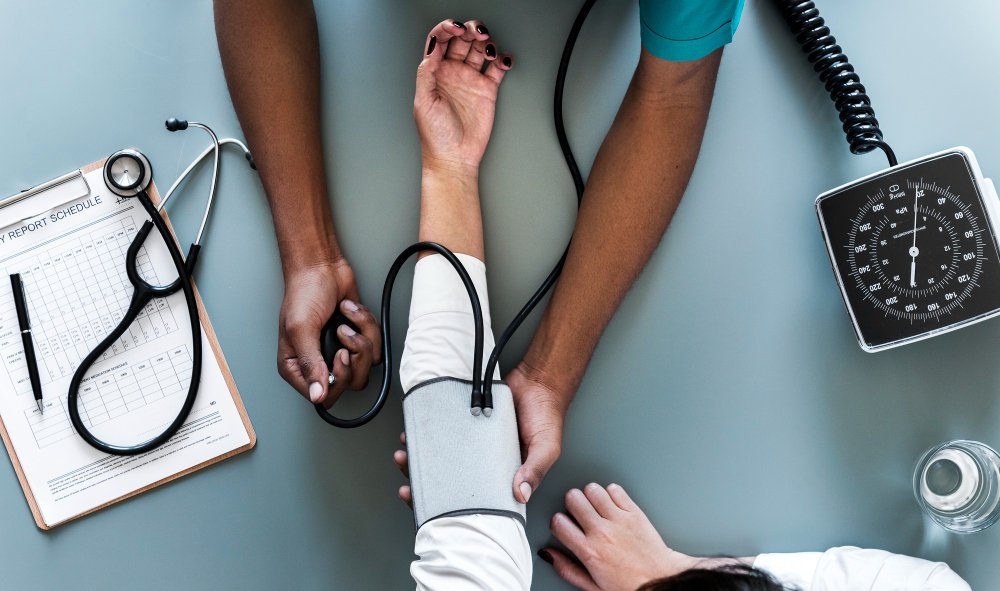What is Hypertension?
Hypertension, also called high blood pressure, is a common health problem. It happens when the force of blood against your artery walls stays too high for a long time. Because hypertension often has no clear signs, many people do not know they have it. However, if left untreated, it can lead to serious issues like heart disease, stroke, or kidney problems. According to the World Health Organization (WHO), about 1.28 billion adults worldwide have hypertension. Early detection and proper blood pressure management are important for staying healthy.
Common Symptoms of Hypertension
Most people with hypertension do not notice any symptoms. Still, some may experience warning signs, especially if blood pressure is very high. For example, you might notice:Headaches, especially in the morningDizziness or feeling lightheadedBlurred visionNosebleedsShortness of breathChest pain
However, these symptoms can also be caused by other health issues. Therefore, regular blood pressure checks are the best way to know if you have hypertension.
Causes and Risk Factors
There are many reasons why someone might develop hypertension. Sometimes, the exact cause is unknown. Yet, several risk factors can increase your chances. These include:Family history of high blood pressureBeing overweight or obeseEating too much saltNot getting enough physical activityDrinking too much alcoholSmokingChronic stressOlder ageHaving certain health conditions, like diabetes or kidney disease
Because some risk factors cannot be changed, it is important to focus on what you can control. For instance, making healthy lifestyle choices can help lower your risk.
How Hypertension is Diagnosed
Doctors diagnose hypertension by measuring your blood pressure. Usually, they use a simple device called a blood pressure cuff. For an accurate diagnosis, your doctor may check your blood pressure on several visits. According to the Centers for Disease Control and Prevention (CDC), normal blood pressure is below 120/80 mmHg. If your readings are higher, you may have hypertension. Sometimes, your doctor may order extra tests to check for other health problems or to see if hypertension has affected your organs.
Treatment Options for Hypertension
Treating hypertension often involves a mix of lifestyle changes and, if needed, medication. Your doctor will choose the best plan for you. Common treatment options include:Taking prescribed blood pressure medicinesFollowing a healthy eating plan, such as the DASH dietReducing salt intakeGetting regular exerciseLimiting alcoholQuitting smokingManaging stress
Because everyone is different, your treatment may change over time. Always follow your doctor’s advice for the best results.
Lifestyle Changes and Prevention Tips
Making healthy choices can help prevent or control hypertension. For example, you can:Eat more fruits, vegetables, and whole grainsCut back on salty foodsExercise for at least 30 minutes most daysKeep a healthy weightLimit alcohol and avoid tobaccoFind ways to relax and manage stressCheck your blood pressure regularly
Because small changes add up, start with one or two steps and build from there. Over time, these habits can make a big difference in your blood pressure management.
When to See a Doctor
You should see a doctor if you have high blood pressure readings or notice symptoms like headaches, chest pain, or shortness of breath. Additionally, if you have a family history of hypertension, regular check-ups are essential. Early treatment can prevent serious health problems. If you’re already receiving treatment, ensure you keep all your appointments and discuss any side effects or concerns with your doctor.
In summary, hypertension is a common yet serious health concern. With early diagnosis, proper treatment, and healthy habits, you can effectively manage your blood pressure and protect your health. For personalized advice on managing hypertension, consult a healthcare professional at Niramayah Mediclinic.


